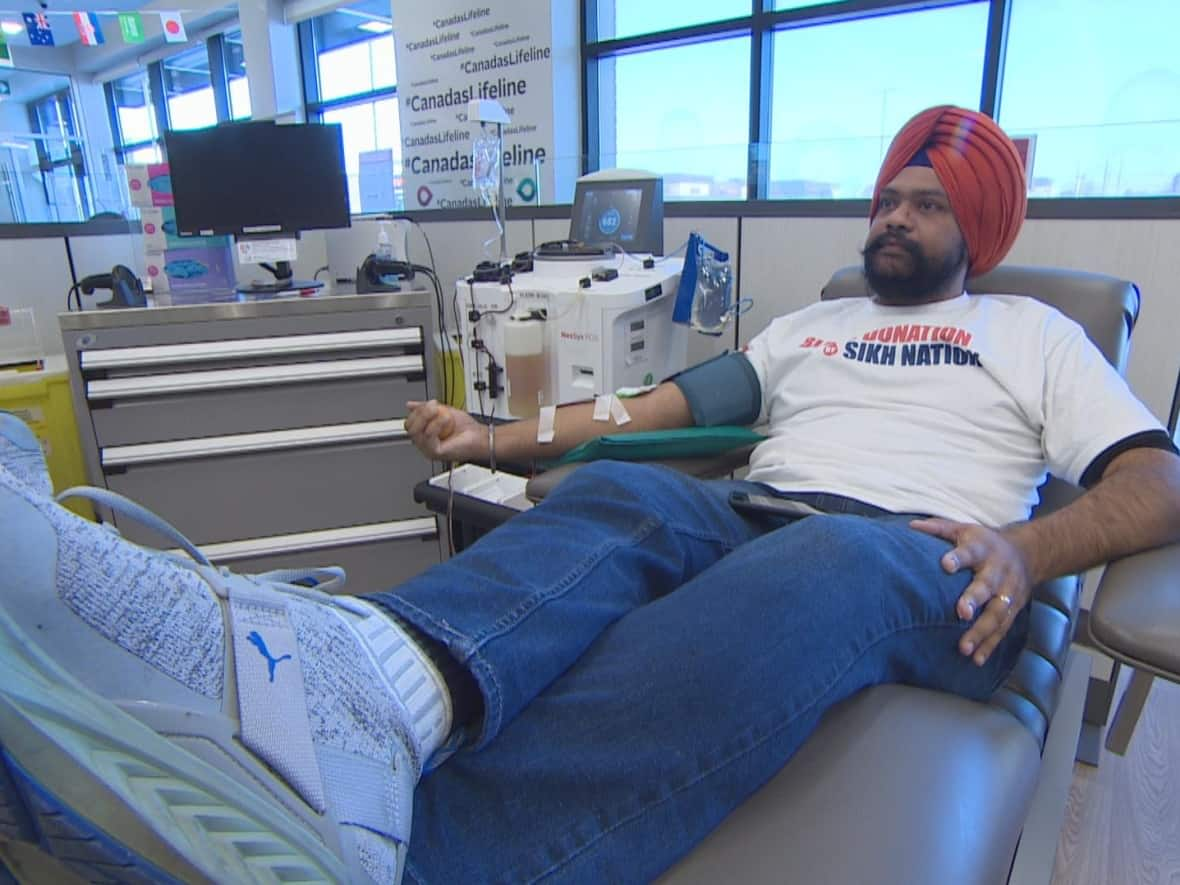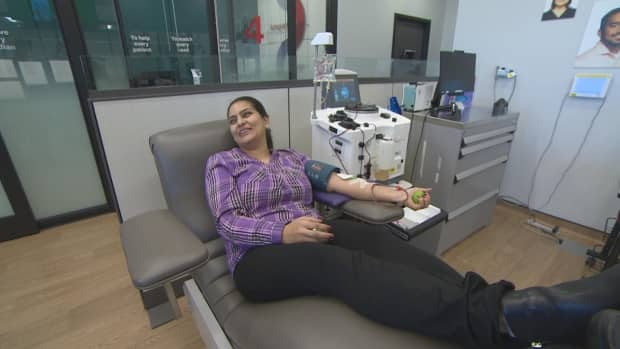How the Ontario Sikh community became one of Canada's most committed blood donors

For the past 11 years, Baljit Singh Ghuman has been raising awareness to Sikhs in Ontario on the importance of donating blood.
It's one way to give back to others, in line with Sikh teachings and values. But it's also an important way, he says, to remember an estimated 3,000 and more Sikhs who died due to anti-Sikh violence in India in November 1984.
"Sikh blood was spilled. And now Sikh people around the globe, they are donating blood," said Ghuman.
"It is a healing process for us — coming out of that adversity while doing something good."
The violence, which followed the assassination of then prime minister Indira Gandhi by her two Sikh bodyguards, has not been formally recognized as a genocide by the entire Indian government, Ghuman says. But diaspora communities in the province, and even across the globe, have been steadfast in calling it a genocide and remembering the event.
Ghuman helped spearhead the network in Ontario from Brampton 11 years ago as part of Sikh Nation, a network of global volunteers that launch local blood drives each November in recognition of the 1984 anti-Sikh violence.
The group has been the Canadian Blood Services' most prominent partner in the country for the past two decades. More than 160,000 lives have been saved since the network started in 1999, Ghuman says, with things getting better each year.

"We had to educate people, like people were scared to donate blood in our community," said Ghuman, who helped run Saturday's campaign in Brampton's recently-opened plasma donor centre.
"But now, we don't have to call them. They call us like 'Hey, it's November, so I want an appointment.' So the tables are turning."
Why donating regularly is important
While each year focuses on donating blood, Brampton's Saturday clinic was different. A first for Ontario Sikh Nation volunteers, the clinic focused on donating plasma for the Canadian Blood Services.
The organization says the need for plasma is four times greater than what's actually collected as it takes more than 100 plasma donors to help treat one patient in a year. But with plasma, female donors can donate every 14 days, while male donors can donate every seven days.
Gurinderpreet Mann is one of them. He sets aside about an hour and a half each week to donate plasma. This month he's doing it with the 1984 massacre top of mind, but also hopes to send a message to communities who experienced something similar.
"We are all humans and should be treated equally," said Mann.
"We are saving lives by donating blood, and in a positive way, giving a message that there should not be genocide happening anywhere in the world."
The holiday spirit gives donor Amandeep Brar extra motivation to give. As a donor for the past two years, she says it's a way to bring joy and happiness to someone in need, free of charge.
During the pandemic, donors would cancel or fail to show up to their appointments at higher rates than normal, Canadian Blood Services says, while during the winter holidays, donations usually decline while demand increases.
"I will request everyone to come step out and give whatever they can give back to the community and make us a stronger nation."

Creating similar community partnerships
Canadian Blood Services says there are more than 60,000 open appointments across Canada that need to be filled by the end of this year, with a particular need for A and O positive and negative blood types. It also has more than 1,000 people waiting for a stem cell match and 4,000 waiting for an organ transplant.
With that in mind, the success of Sikh Nation's blood campaign is something Canadian Blood Services wants to replicate with other communities.
"We have a very proud and long partnership with the Sikh Nation," said Canadian Blood Services CEO, Dr. Graham Sher. The organization says it's been working with the network for 23 years.
"We're extremely grateful to them. They have made a profoundly important commitment right across the country."
One way it hopes to achieve that is through its recently launched Give 3 in 2023 campaign, which asks Canadians to commit to donating three things that can support the organization, such as blood, plasma and stem cells, financial donations or volunteer time.
"We have a stable inventory of blood today, but the demand never goes away."


